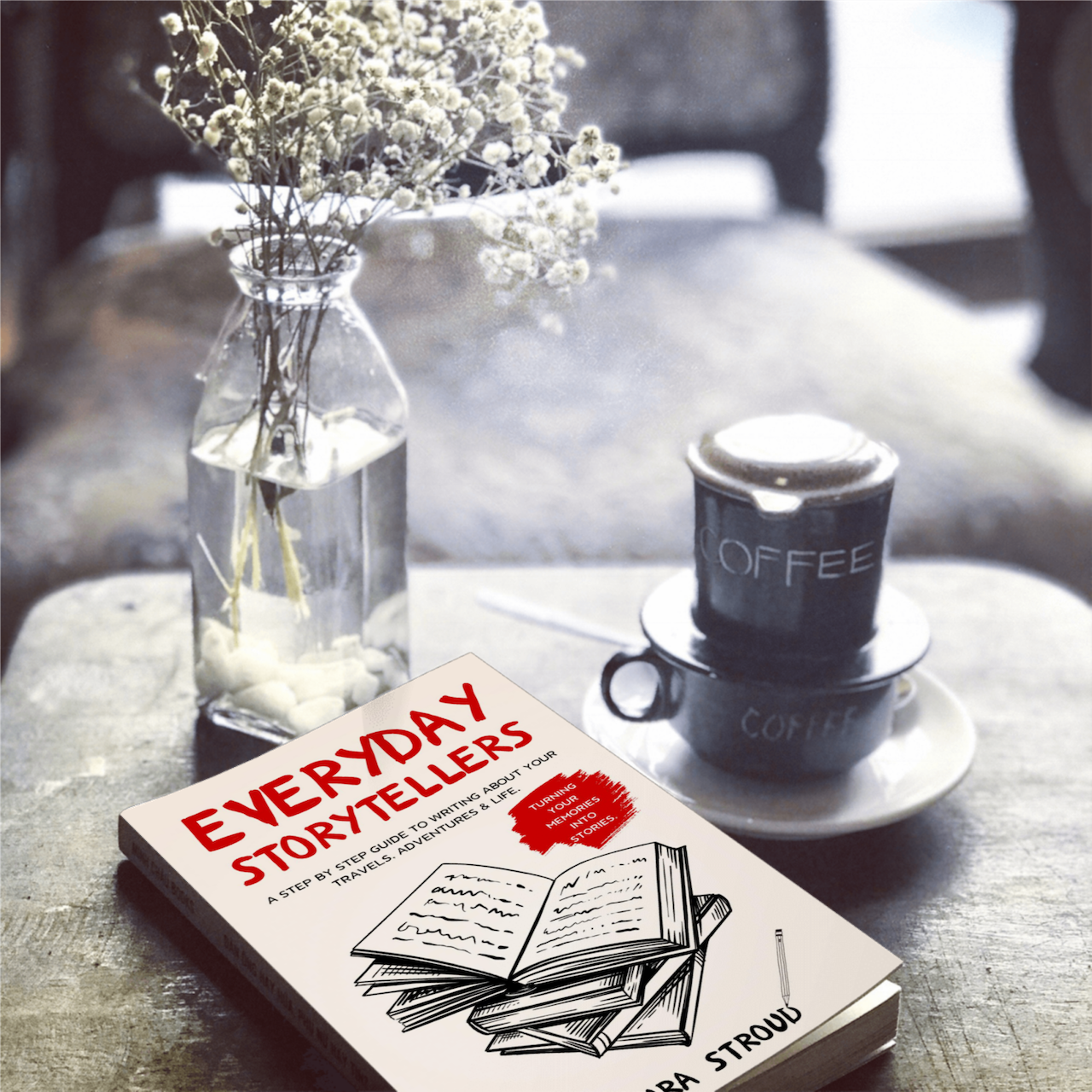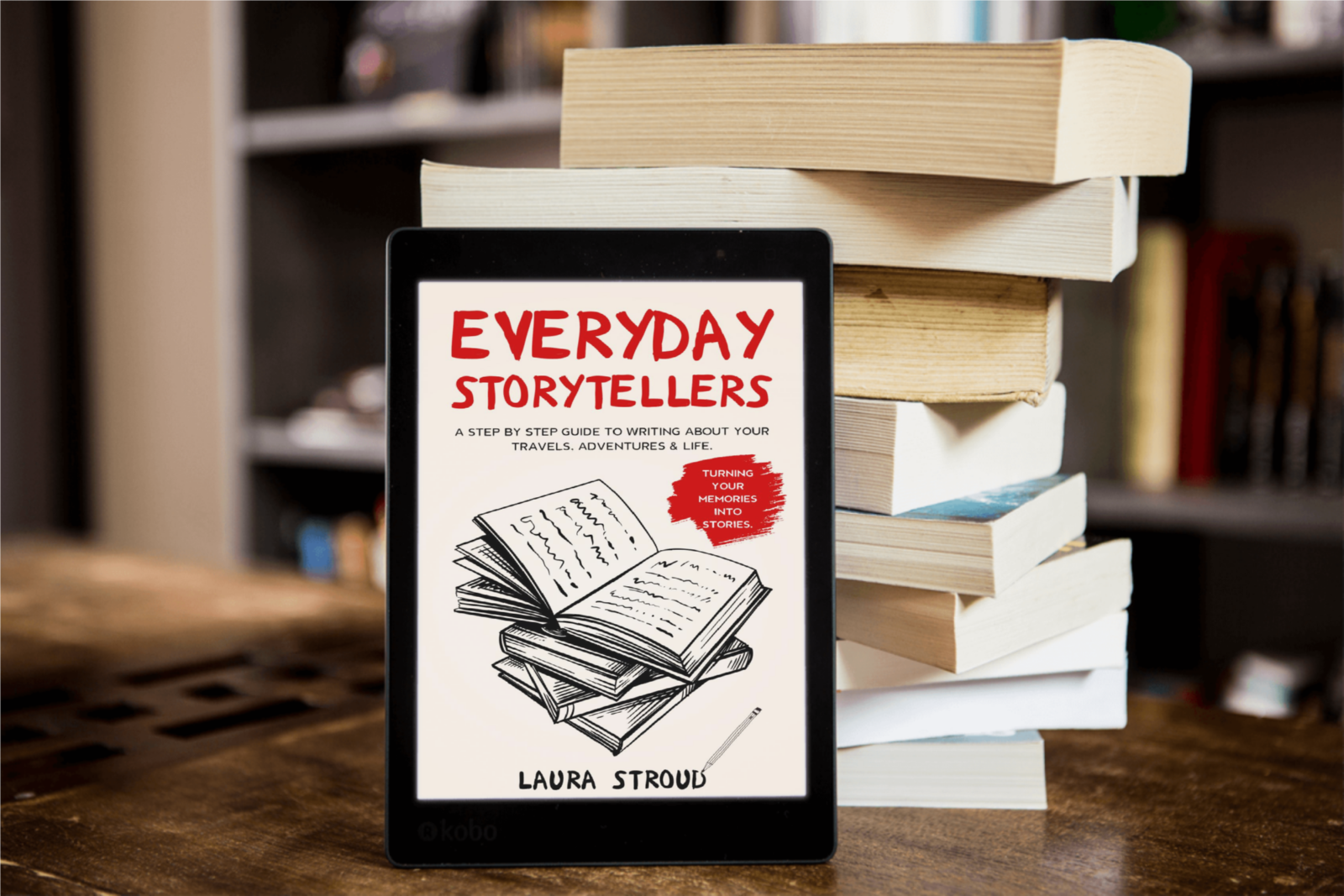How to become an Everyday Storyteller

I’ve written a book!
I promise I won’t go on about it forever. I can imagine that would be annoying but also, I want to crack on with writing the next book and the next one because I believe the only thing that actually makes me a writer is that I write. That’s my definition of success. Day in, day out. Even when I don’t feel like it. Especially when I don’t feel like it, I show up and write.
There is, however, something I want to share with you. Five months ago, this book didn’t even exist as an idea, yet today I sit here holding it in my hands. It’s tangible. A dream that became a reality. A dream I can see and touch and even you can have a piece of.
This can be the same for you, the things you’ve always wanted, the dreamyou’ve long thought impossible – it can become real for you.
Small actions change the world. Bite-sized chunks of action make all the difference. Little steps forward eventually do allow for big things. Everything seems impossible at the start, but you are capable of hard things. You are capable of achieving your wildest dreams.
Start today, start slowly. What’s the smallest possible step you can take?What’s a micro action you can implement to move forward? Start there. No bigleaps or huge changes. No investment of cash or mega risk. Just the smallestactions you can take to move forward.
I talk about some of this in the book. Even though the activities are about writing and documenting your life, setting up a routine and developing habits are universal and they can be applied to whatever dream you are working towards. Documenting your life or starting a new project.
This is how I made it to the first draft, day by day. Word by word. This is how I’m becoming an Everyday Storyteller and this is just the beginning.

What is an Everyday Storyteller?
An Everyday Storyteller is someone who:
- Makes the most of every day, searching foradventure in the ordinary.
- Knows the value of a moment and wants totreasure it forever.
- Doesn’t want to forget the incredible lifethey’ve worked for.
- Wants to share the best days of their livesthrough stories.
- Doesn’t want to lose their memories.
- Is seeking connection.
- Sharing stories opens doors.
- Looks for a story to tell.
Are you worried your life is too boring to write about? Orare you worried you don’t have the time to write? Areyou desperate to learn how to write and craft better stories but you’reembarrassed because you don’t know how, or worse, you think it might be stupid?
You have a story to tell. Your life is remarkable, and it’s worthwriting about.
I can give you a step by step guide to becoming the Everyday Storyteller youdream to be and help you remember the wonderful details of your life.
Your life is extra-ordinary.
The things you see, the places you go, the people you meet, they are full ofso many stories, adventures, tiny miracles and big moments. Are you capturingit? Are you writing down the days and the stories? The magical moments thatmake up your life. Are you savouring those images and experiences or lettingthem disappear?
You’ll forget. We all do.
This is why you need to write your stories down. You will forget your lifeif you don’t write it down. Memories fade and stories unwritten will beforgotten. This is why you need to become an Everyday Storyteller.
Does this sound like you?
It could be you.
With a little bit of work, a sprinkling of effort and a dash of routine, youcould start to capture the moments of your life before they disappear. Youcould start to build your legacy through words and stories.
You could start to become an Everyday Storyteller.

Writing about your life
This is where the idea for Stories From a Backpack originatedfrom. It was an idea born out of the regret of not writing it all down, notremembering the details of my life and travels. I wanted to create a place toshare what I’d seen, felt and learnt. A place to share my stories.
But even better than that, writing about my travels is helping me slow downtime.
Can we really slow down time?
The best way I know to slow down time is to travel. To explore new places.To lean into new adventures and to meet new people. And to make space in mylife for the things that bring me joy.
The next best thing to slow down time? To write about these travel experiences. To write about those people I love, the adventures and the small gifts that life offers which bring me joy.
- Walks in the cascading sunshine.
- Tapas on wonky tables in cobbled streets.
- Crunchy leaves in the autumn haze.
- Crashing sea waves.
- And endless summer days.
What about you?
I used to count down the days. Wishing weeks away, clock watching untilFriday. Not wanting to slow down time. “Ten little Mondays,” I’d say. Tenlittle Mondays and things I’d been wanting would arrive. Ten Mondays until aholiday, a week off or a birthday. Constantly counting down to speed things up.Now all I want to do is slow down time. Those ten little Mondays are soprecious. I don’t want them to disappear.
I don’t know if this happens suddenly one day or if it’s a slow burn.Somewhere in the background, simmering and smouldering on low, a countdownbegins. The dawning realisation that the good days are here, and these tooshall pass.
Recently, I’ve found myself grasping at seconds and hours and days, clingingto the shape of them, desperate to stop the sand from slipping through myfingers. Desperate to remember my life. Desperate to savour my memories, andthis is when I started writing down my stories in earnest.
This is when I became an Everyday Storyteller. This is why I becamean Everyday Storyteller.
To capture on the page the way the world looked, the experiences wefelt and saw. Trapping that moment in time as a story saved and stored. Talkingabout travel stories, writing them down, is one of the best ways I know to slowdown time.
One thing is certain: we don’t get any more time. Not in a single day andnot in a whole lifetime. You can’t buy more. Or request more. You might be ableto allocate more ‘free time’, but it’s the one thing we can’t create, demand orexpect more of. We get what we’re given. And that is simultaneously unknown andfinite. We have to make the most of what we’ve got.
Starting to write about your life will allow you to reflect on the details.Slowly, you’ll notice the details more as you live them. Writing more will leadto living more in the present.
Instead of counting down, I’m slowing down. Learning to be more present so Ican feel the time pass. I can experience themoments as they move through me. And I can write about the stories and theexperiences I want to save. Slowing down my life to the movement of a penacross a page or the speed of my hands across the keys.
Becoming an Everyday Storyteller helps you capture the past. It helps youlive more fully in the present. What’s more, it allows you to have greaterexperiences in the future, as you learn to live a life worth writingabout.
I’d love it if you wanted to become an Everyday Storyteller with me. You can join my monthly newsletter for advice, ideas and stories. Or you could buy my book (and leave a review!). Whatever you decide, I hope you take that smallest possible step and start working towards the thing you've always dreamt of.

